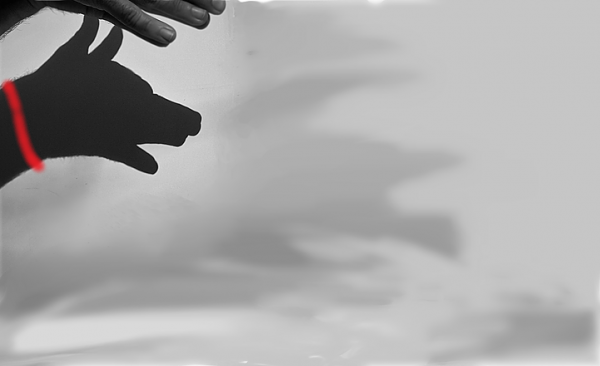Theme vs Agenda in Your Story
If you dont know what your story is really about, start finding out now (and don’t stop).
By Amos Ponger
Mankind’s Stories
The human ability of creating stories and the consumption and absorption of stories are very deeply connected to the core of our civilizations. Our efficiency as a species and cooperation in all scales of human endeavor rely on our ability to tell, decode, understand, and believe in stories.
Story has been so important for mankind’s cooperation, development and the way humans have understood themselves that all of our grand evolutions and revolutions – from the agricultural, religious, economic and cultural revolutions, the invention of money and law, the renaissance and humanism, the American, French and Russian revolutions, modernism, to socialism and capitalism – have actually happened through processes of rewriting collective Story. Revolutionaries and evolutionaries from Moses through Jesus, to Buddha, have actually risen upon a grand scale transformation of how humans understand themselves and cooperate with each other. And that has been done by story. Often the seeds of politics of whole centuries had actually been sown by poets, philosophers and prophets. STORYTELLERS.
Your Story
Now, even if you don’t plan on a revolution or a grand scale transformation of mankind, and just wish to create appealing stories, bear in mind that transformation, the fear of or wish for transformation, the transformation of these fears and wishes, or probably all of the above, lie in the base of every great and profound story.
When writing your story, you might have asked yourself the question filmfunds, producers and publishers love to ask story creators of every genre: “What is your story actually about?”. Though possibly annoying, especially if you’re not prepared, this question is a door to a deeper understanding not only of your protagonist’s transformations, but of your own motives and goals.
You may have already figured out most of your story – the characters, the structure, your plot points and dramatic arcs –, but if you still feel weakened by confusion, you may have not asked yourself yet why YOU have to tell THIS STORY, and probably have only a vague idea about what your story is really deeply about.
“What a story is about” is often referred to as Theme. And the theme of your story might be articulated in many different terms. I would like to encourage you to define theme in terms of a clash between world views, philosophies and life options or principles.
Agenda
Let’s say you are making a fiction or documentary film about a group of conservationists, fighting against greedy bottled water companies in a lion sanctuary in Africa. You might be intrigued by the bravery and stamina of the activists, and inspired by the price they are willing to pay in order to create a better world. And that is maybe why you are making the film. Because you believe in a cause.
But attention. This is Agenda. It’s not yet a theme. And there are big differences between them. And experience has shown that they get many of us confused.
In your film about the lions, the conservationists, and the greedy bottled water companies, you might have figured out your agenda. But while the agenda corresponds with an external reasoning, theme corresponds with an internal journey and often requires a longer exploration of excavation. While filming hate and greed in the African prairies, you might discover that your film is actually about learning how to say “I love you”, or that it is actually about standing up against your father who has always wanted you to become an accountant. It can be a film about the possibility of repairing the collective wrongdoings of past generations, or about the sources of fear and greed in yourself and your fellow humans.
This well is deep.
I would like to encourage you to take this step beyond agenda and plot, and connect the question of what your film is about to the question of why YOU choose to tell this story, the things you want to transform in the world and in your life, and to your own personal growth. (Which will probably be occurring anyhow in the process.)
So, great stories are not only about transformation, they are the outcome of profound processes of transformation. That is why many authors, filmmakers, story editors, and storytellers are looking to dive into the practice of transformational storytelling. There is probably no easy way to do this but plunging into the process. And even if you think you know the answer, it may change during the process. It might even go on changing well after your book is published and your film has been shown in cinemas. And that is a good thing. Because in the deeper sense, the process of finding the truth about what your film is really about is really your goal.
© Amos Ponger, 2020, all rights reserved
Click here if you are not sure what your story is really about.
Related function in the Beemgee story development tool:
Story Information
Know your agenda …?


